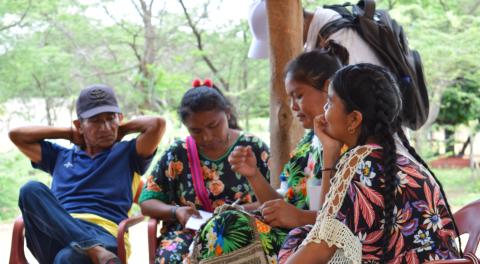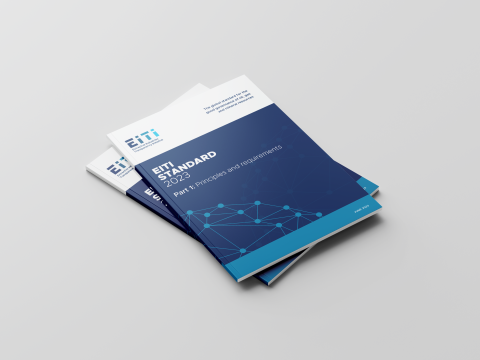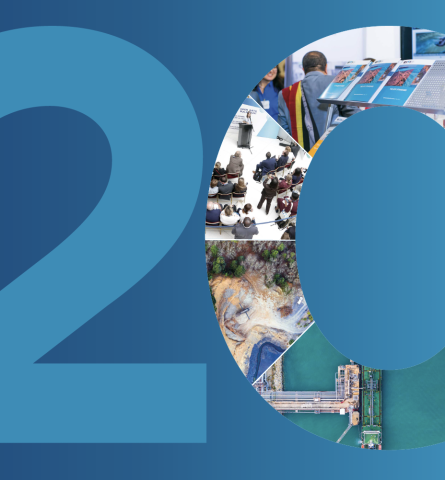
Speaking directly: Environmental transparency in Latin America and the Caribbean
Environmental transparency in Latin America and the Caribbean
On 17 and 18 November, more than 200 participants from 29 countries gathered for a two-day virtual Debate, convened with seven civil society partners from Latin America and the Caribbean to provide a public space to debate issues affecting environmental transparency in the region.
Experts from industry, civil society and the public sector shared views on three main themes – environmental information, energy transition and environmental rights activism. Using EITI efforts across the region to frame the discussion, participants shared first-hand perspectives from regional institutions and experiences from their own communities in a rich debate.
Stronger regional frameworks
Transparency plays an ever-growing role in underpinning a fair energy transition in Latin America and the Caribbean. The recent Escazú Agreement provides a strengthened framework for access to information, environmental justice and the protection of environmental, land and territorial defenders.
Carlos de Miguel, Head of Policies at UN’s Economic Commission for Latin America and the Caribbean (ECLAC), noted the relevance of transparency in reducing environmental conflicts, in a region which sees one-third of global conflicts. He reflected on the link between rule of law and violence against environmental defenders. Similarly, he saw clear synergies between the work of the EITI and ECLAC in seeking to tackle these challenges.
César Gamboa, Executive Director from DAR Perú and an EITI Board member, stressed that the Escazú framework should allow for more information to be made transparent through EITI processes across the region and to be used by EITI and other stakeholders. Gamboa added that national governments should be aware that this agreement should be used to strengthen their own environmental management.
Camila Zepeda, Head of Global Affairs at the Mexican Ministry of Foreign Affairs concurred with the opportunity offered by the Escazú framework to incentivise government action on environmental and social justice, while developing its natural resources. She praised the EITI process in Mexico and saw a clear opportunity to learn from the EITI’s efforts in strengthening transparency and engaging with civic society. Alonso Cerdan, Deputy director at the Open Government Partnership (OGP) explained how countries like Perú, Chile, Panama, Ecuador, Mexico and Uruguay are including environmental transparency commitments in OGP action plans. He noted that the multi-stakeholder nature of the EITI and the OGP supports stakeholder collaboration to boost governance of natural resources in the region.
Reflecting voices from the ground
Voices of organisations and activists at the community level were heard directly in the debate. They agreed that the demand for social and environmental information occurs in a context of urgent and persistent environmental conflicts over natural resources in the region.
Oscar Daza, from the National Organization of the Indigenous People in the Colombia’s Amazon region, highlighted that illegal activities around mining communities continue to conduct activities in detrimental ways to the environment, impeding proper governance and the functioning of regular monitoring channels.
Janette Bulkan (Policy Forum Guyana) and Immaculata Casimero (Wapichan Women’s Movement), from indigenous communities in Guyana, reminded participants of the gaps between regulatory framework and actual practice. Prior consultation for new projects continues to be a challenge and communities still feel that their voices are not properly considered.
Gary Aboud, from Trinidad and Tobago’s Fisherman and Friends of the Sea, shared frustrations about the failure to secure access to information to extractive contracts, despite petitions to see these agreements. He called for prompt publication, to allow citizens to monitor deals and ensure sustainability and high standards in upholding human rights.
On the emerging issue of energy transition, Ozzi Warwick, from Trinidad and Tobago’s Oilfields Workers Trade Union, reflected that a just energy transition will need to consider proper compensation for the many citizens who have depended on the oil and gas industry for decades in his country. Silvia Molina, from the Centre for Agrarian and Labour Latin American Studies, urged policy makers not to repeat mistakes leading to social, economic and territorial inequalities from the traditional mining model, in designing energy transition policies and putting them into practice. Daniel Castrejon and Sol Perez from Poder and Fundar – two organisations participating in the EITI in Mexico – called for greater inclusion of human rights and environmental activists in the EITI process, to help ensure that EITI data reaches local communities.
Plugging the gap
These discussions illustrated gaps between rules and regulations and realities on the ground. While EITI processes across the region are delivering transparency on regulatory frameworks, more information is needed on actual practice. Similarly, advancing on environmental transparency and governance requires that both national institutions and local communities are engaged, informed and coordinated. The debate showed an increasing appetite for EITI environmental disclosures but also the need to expand the use of this data in stakeholders’ work in the region.



